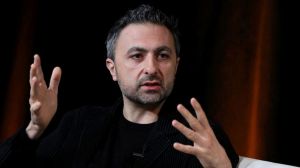Breaking up
Hungarys PM unfriends IMF,a first for diplomacy via social media
Hungarys PM unfriends IMF,a first for diplomacy via social media
Teenagers and heads of state dont often conduct relationships in the same way. But last week,when Hungarys prime minister,Viktor Orban,rejected the International Monetary Funds allegedly tough loan conditions,he used Facebook to do it. Orban updated his Facebook page with a video message that stated that Hungary would not accept pension cuts and fewer public employees,among other conditions,in return for an 18.9 billion loan. His decision to unfriend the IMF on the social network took markets and analysts by surprise,as just a day earlier he had indicated that negotiations with the agency were going fine.
Emails,instant messaging and Skype offer new ways to keep in touch,build new relationships and end them. And now,social networks,particularly Facebook,are becoming the arbiter of relationship status. After all,a person isnt really committed until she updates her status to reflect that she is no longer single. A friendship hasnt truly ended until one party unfriends the other,making it official. So perhaps it shouldnt come as a surprise that politicians are embracing the opportunity to communicate their displeasure via Facebook,which offers them another space to connect to their publics.
Traditional forms of diplomacy are being modified for a networked public and society. The US State Department employs a team of bloggers to counter online extremism,particularly in the Arab world. In the past,governments and officials have used the internet,particularly Twitter and other social networks,for public diplomacy. They have sought to explain policies and canvass support via social media. Orbans use of Facebook as a tool to conduct foreign policy could just be a pointer to the shape of things to come.
- 01
- 02
- 03
- 04
- 05































